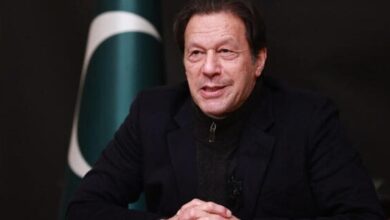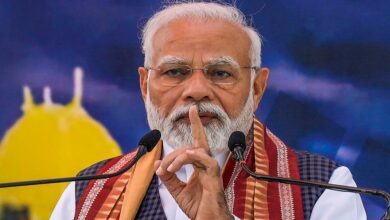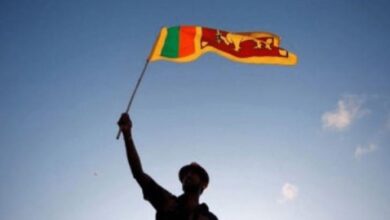Pakistan’s army firmly in command despite election rebuke
The army is consolidating power as Pakistan faces the worst inflation in Asia, a crippling debt load and the need to negotiate another bailout from the International Monetary Fund.
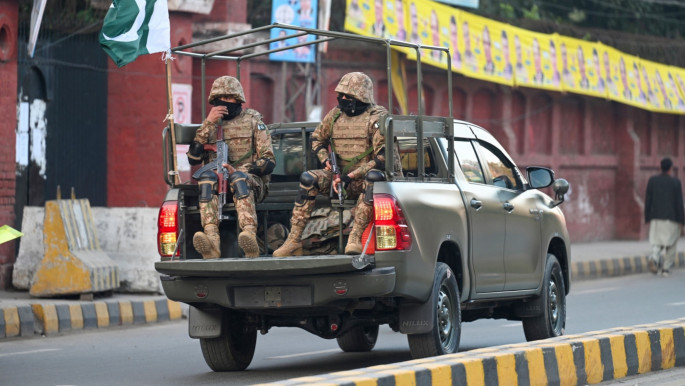
Betsy Joles, Faseeh Mangi, and Kamran Haider; Bloomberg
Pakistan’s voters expressed their disillusionment with the nation’s powerful military in a surprising election result earlier this month. But the army is still poised to have more control from behind the scenes than ever — and reviving the economy will be its ultimate test.
The military, which has ruled Pakistan directly or indirectly for most of its modern history, is set to make all important decisions on foreign policy and security for the country’s new government and have a more expanded role in running the nation’s economy, a person familiar with the matter said. Shehbaz Sharif, who’s expected to become prime minister, is likely to be only a figurehead, the person said, asking not to be identified because the information is private.
The army is consolidating power as Pakistan faces the worst inflation in Asia, a crippling debt load and the need to negotiate another bailout from the International Monetary Fund. Observers are largely pessimistic that a weak coalition propped up by the military will fare any better than similar governments in the past.
While the army “definitely has more credibility” than politicians, “it has not shown historically a strong grasp or understanding of what needs to be done,” said Yousuf Nazar, a former Citigroup Inc. banker and author of The Gathering Storm: Pakistan.
Pakistan’s military and Sharif’s party did not respond to a request for a comment.
In 2022, the military admitted that it had interfered in the country’s politics – but vowed not to do so anymore. Last year, interim Prime Minister Anwaar-ul-Haq Kakar did not rule out future intervention given the weakness of the country’s civilian institutions.
Pakistan’s two old-guard political parties — controlled by the Sharif and Bhutto clans — agreed last week to form a government, breaking an almost two-week impasse after an inconclusive election on Feb. 8. The elected lawmakers will meet on February 29 in the first session of National Assembly that will select a prime minister with former premier Shehbaz Sharif expected to take the job.

The move thwarts the former premier Imran Khan, who fell out of favor with the military and ended up in jail. His party colleagues were forced to run as independents, and still won the most seats but fell short of an outright majority. Khan’s party did better than most surveys, which is seen as a sharp rebuke of the military’s attempts to sideline Khan and engineer the elections to their desired outcome.
The new coalition regime “will be entirely reliant on the goodwill of the military to be able to stay in place,” said Omar Warraich, a political commentator and special advisor at Open Society Foundations, an organization that gives grants in support of civil society. The army can easily bring it down if it disagrees on policy, he said.
That has been the story for much of Pakistan’s history since independence in 1947. Khan himself, for instance, was widely seen as backed by the generals when he came to power in 2018. But the relationship soured when the former cricketer tried to influence military appointments, leading to his ouster. Shehbaz was anointed as his successor. His brother Nawaz, a three-time former premier, also had a history of being backed and then deposed by the military, including once in a coup.
Shehbaz has been conciliatory with the military, including publicly praising army chief Asim Munir. During his time in office, Shehbaz’s government passed two bills to give the military more power. One criminalized criticism of the armed forces; the other gave the security forces unlimited power to arrest any individual they deem a threat.
Pakistan set up a Special Investment Facilitation Council in June, during Shehbaz’s term, to promote foreign investments and spur growth. One of the council’s members is the army chief, Munir. Its immediate aim has been to increase foreign direct investment to $5 billion. So far no major deals have been signed.
The Economist Intelligence Unit’s 2023 Democracy Index, released earlier this month, downgraded Pakistan to an “authoritarian regime” from a “hybrid regime.”
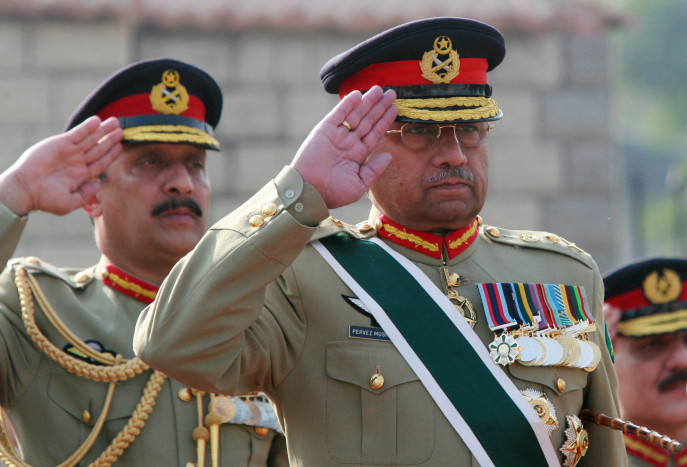
Pakistan’s arch-rival India expects Pakistan’s military to play a more pivotal role with the fractured mandate making it impossible for any individual leader turning against the army, an official familiar with the matter said, asking not to be identified as the person isn’t authorized to speak to the media. They do not rule out peace overtures with India after new governments settle in both countries, said the official. India’s elections are scheduled for later this year.
Some in Pakistan see the military’s heavy-handed role as a good thing.
“Whenever we’ve had a military government, decision-making is easier. So the economic indicators are at times better,” said Omar Mahmood Hayat, a retired military lieutenant general and chairman of Unity Foods Ltd., a Pakistani food manufacturer, citing the economy under former military dictator Pervez Musharraf.
Musharraf ruled from 1999 until 2008 and oversaw an economy that fared better than other elected governments, according to the misery index by Bloomberg Economics, which looks at unemployment and inflation rates. Musharraf was favored by Western allies. His tenure, which largely coincided with the worst years of the War on Terror, saw a healthy inflow of dollars into Pakistan for combating terrorism.
Hayat says the army offers continuity of policies that civilian governments often can’t.
One question is how the public will respond to the new government after voters delivered a rebuke to the status quo by voting for Khan’s loyalists. Supporters of Khan’s Pakistan Tehreek-e-Insaf party took to the streets last weekend to protest alleged vote-rigging.
“Definitely the message is that people are not happy with their intervention,” Ayesha Siddiqa, a political scientist and senior fellow at King’s College London, said of the army.
Shehbaz’s brother, Nawaz, was widely expected to become the new prime minister, with the backing of the army, after he returned from exile in London and was acquitted of corruption charges.
But Shehbaz became the military’s choice, according to Mohammad Waseem, a political science professor at Lahore University of Management Sciences.
“He is a great compromiser,” Waseem said. “He will try to stabilize the situation by giving and taking during critical moments.”
Still, brokering an agreement with the IMF will for Sharif — and the military behind him – require accepting tough conditions from the multilateral lender, which are likely to anger the public even more.
The military may be more powerful than ever, but it has never faced a harder task.
“The economic crisis has now become a national security issue,” Warraich said. “If this economic turnaround doesn’t work, it can easily all be put on Shehbaz Sharif and he could be dispensed with.”

